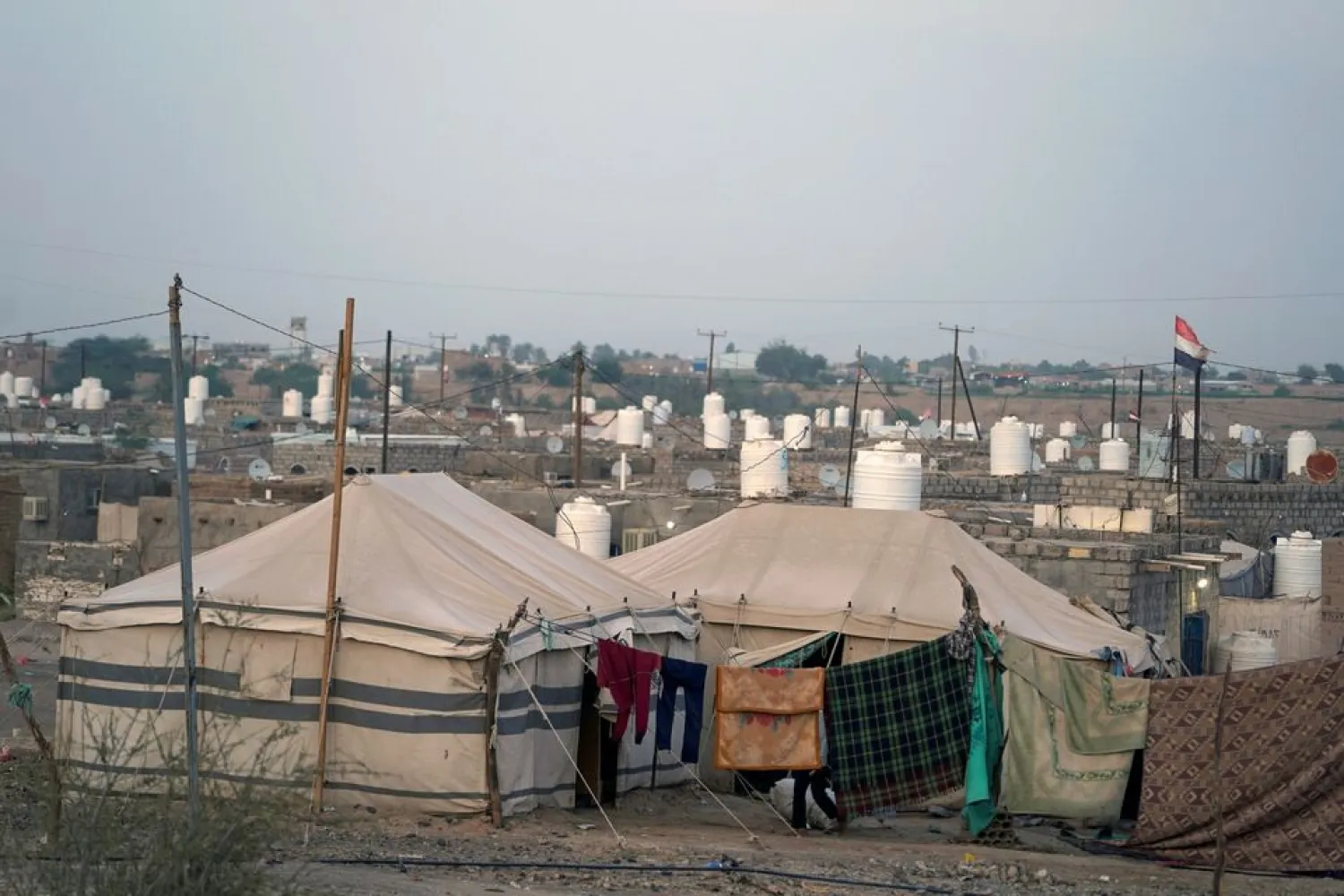The UN Office for Coordination of Humanitarian Affairs (OCHA) confirmed that 44,000 people were displaced this year alone by the military escalation by the Iran-backed Houthi militias in Yemen. The uprooting continues as the government warns against the deteriorating situation in the Marib governorate’s west and south.
Around 4,000 families are stuck in Marib’s Abdiya district, where pro-government forces are fighting off Houthi militias.
This comes as Yemeni Foreign Minister Ahmed bin Mubarak warned of the “dangerous repercussions” of the Houthis’ escalating offensive against civilians and displaced people in Marib.
During a meeting with the chief of the International Organization for Migration (IOM) mission for Yemen, Christa Rottensteiner, bin Mubarak said that the Houthis’ military escalation “exacerbates the difficult humanitarian conditions of the displaced, especially in Marib, which is home to more than two million displaced people.”
He also warned that “the international community’s disregard for such practices allows the Houthis to commit more violence and violations against civilians, which compounds the displacement crisis, forces displacement of civilians, and increases their human suffering.”
In September, Marib’s south witnessed the displacement of over 3,000 families.
While bin Mubarak praised the role played by the IOM in alleviating the tragic conditions faced by the displaced, he pointed to the need for intensifying the organization’s work in the interim capital, Aden, and other liberated governorates.
Meanwhile, in its weekly situation overview on the humanitarian situation in Yemen, OCHA stated that intense fighting continues across Marib, with hostilities particularly prevalent in Sirwah, Rahbah, and Mahliyah districts.
The report revealed that since the beginning of the Houthi military escalation in January, around 44,000 people have been displaced.
As for Abdiya in southern Marib, around 4,000 families are stuck in war zones. More so, the report revealed that local sources had spotted heavy sniper fire targeting convoys transporting medical supplies and essential commodities to Abdiya.









